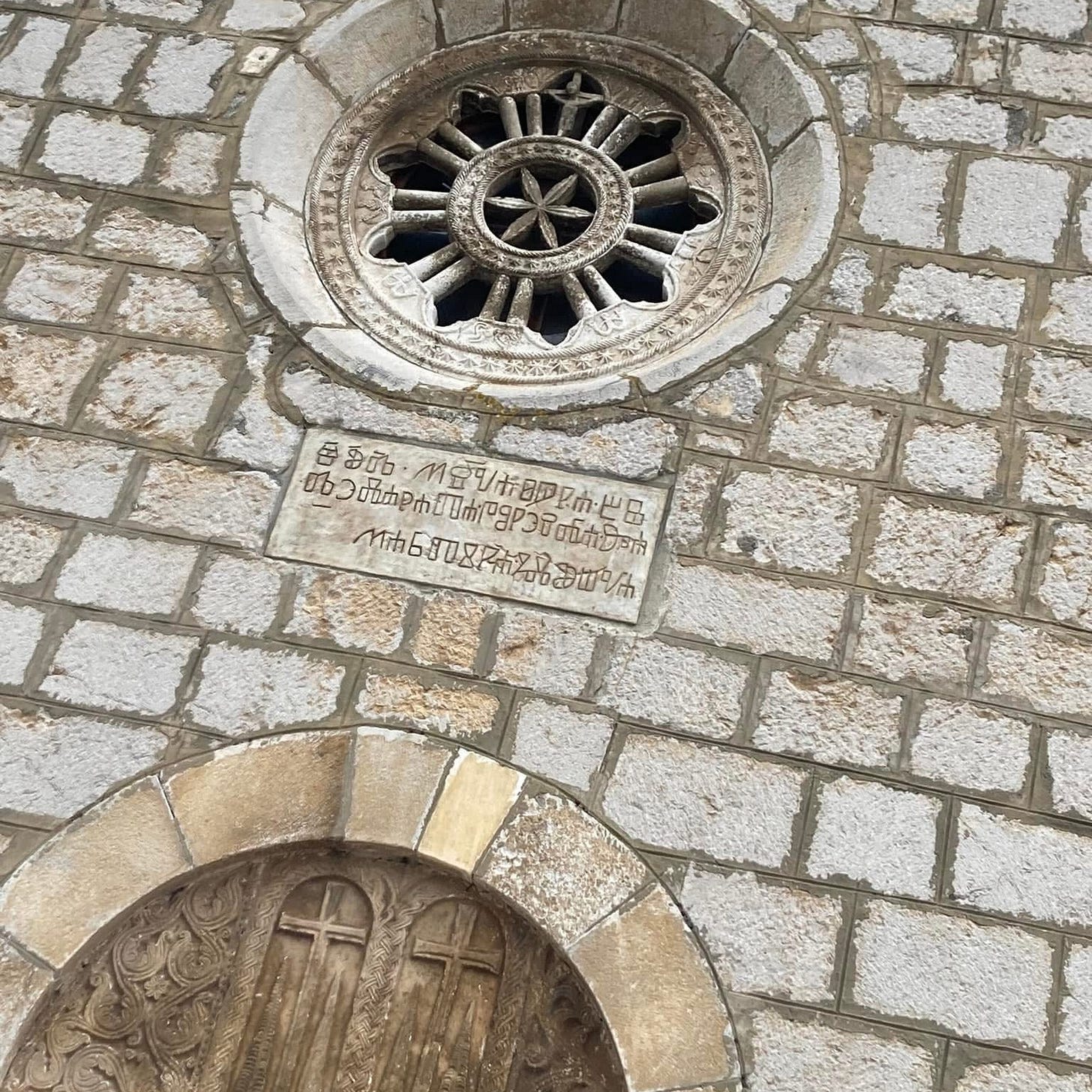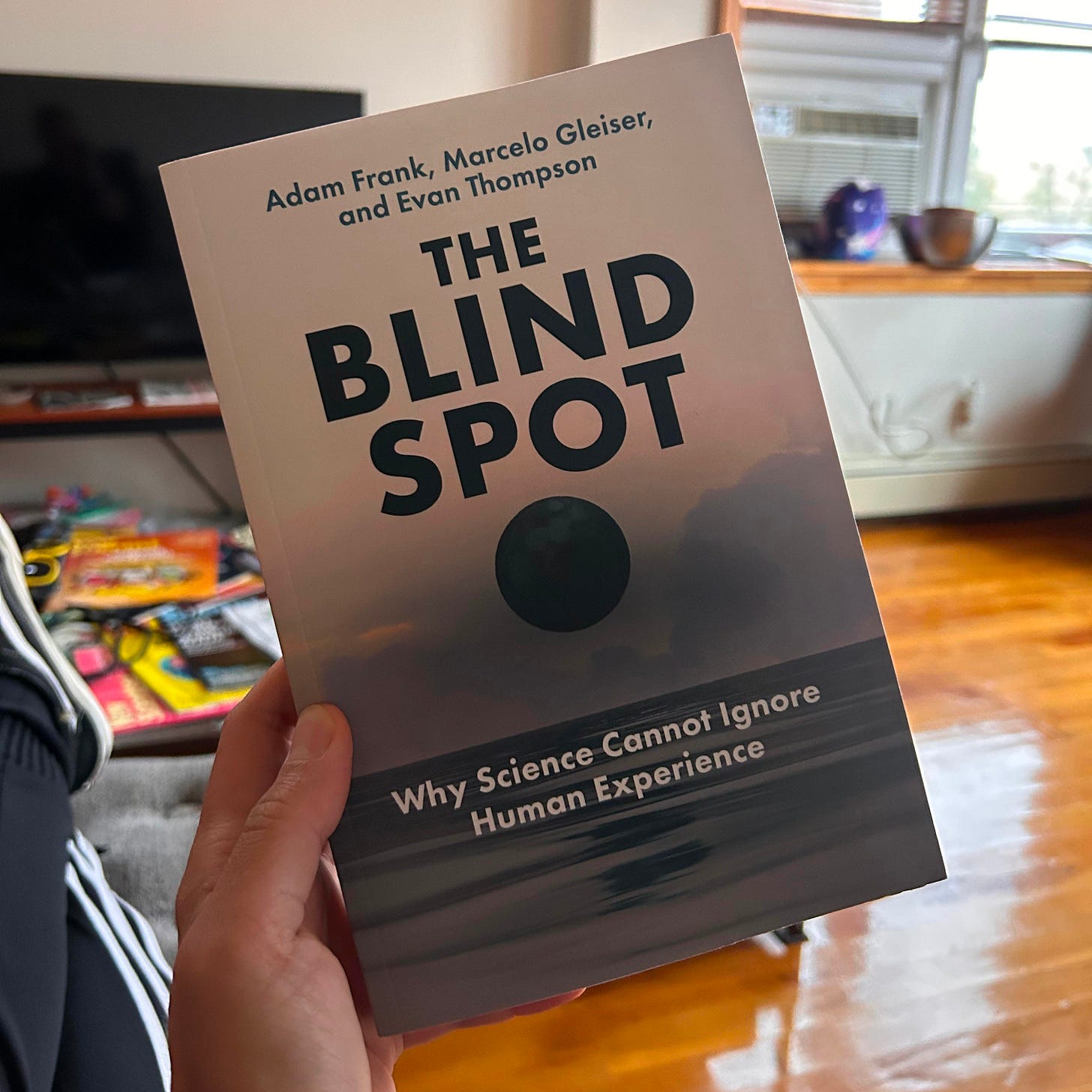The View From Nowhere
Has my religious youth helped me embrace science later on?
Thanks for reading my newsletter! All opinions expressed here are strictly my own. Find me on TikTok, Instagram and Bluesky. I’d also love it if you shared this letter with a friend.
Ultracold publishes every Monday, offering weekly short essays, and monthly Media/Diet and Big Essay features.
THE VIEW FROM NOWHERE
When it comes to science and religion, stereotypes would have you believe that learning science is tantamount to disassembling your faith. Yet, lately, I have been wondering whether being brought up Catholic actually helped me become a physicist.
I grew up in a small town where Sunday mass was both a social event and a religious ritual. Afterwards, all the cafes would fill up, their recently blessed patrons recounting who came to church, who didn’t, what they wore and other not-so-Godly concerns over macchiatos and Croatian cigarettes. My family went to mass too, but mostly so that we wouldn’t stand out. Similarly, I took religion classes in school and attended Sunday school not so much to save my soul as much as to not be seen as rebelling against Croatia’s Catholic history. But I took it seriously. Religion got under my skin quickly. Almost by accident, I became a champion of Catholicism in my family - and a believer.
My understanding of theology was never all that rigorous but I loved the orderliness of it all and I had the kind of hardheaded passion that naturally lent itself to embracing the more prescriptive parts of faith. This was not some squishy spiritualism, it was discipline. My parents and grandparents, who spent many years living under the mandatory atheism of Yugoslavian communism felt compelled to send me to church, but didn’t always share the same level of enthusiasm for its teachings. This confused me. What I was being exposed to was perfectly compelling. It felt holy, right and essential to our culture. The sense that there was something bigger, something beyond me, something that held all the truths, and something that my ancestors also cared for, was close to irresistible.
In The Blind Spot: Why Science Cannot Ignore Human Experience, Adam Frank, Marcelo Gleiser and Evan Thompson, a medley of physicists and philosophers, write at length about how the idea of an omniscient God, or at least a God that transcends all things human, highly influenced the development of theoretical physics as a discipline that heavily values and relies on abstraction.
When physicists write down mathematical equations, they rarely capture the full complexity of the world, or any human’s experience of it. The aim of these equations, really, is to describe our world’s essence and the most basic mechanisms that presumably underlie our perception of it. In other words, there is an implicit belief that there is a deeper truth than what our senses can access, and that its language is mathematical. Because this is the backbone of theoretical physics today, it imbues the discipline with a sense of truth-telling that is not quite human, of offering access to knowledge that we could not gain through constructing a view of the world just by living in it, without using mathematics and precisely constructed and controlled laboratory experiments.
There are echoes of Platonic forms here, and The Blind Spot’s authors also trace some of this framework to Aristotelian philosophy where the cosmos was thought to be divided into an earthly realm where things could change and a godlier realm where everything was eternal. But for Isaac Newton and similar figures that loom large in every introductory physics textbook, the key influence is Christianity. Writing after Thomas Nagel, the trio note
“Although later ages would drive God out of this description of space, the Newtonian God’s absolute perspective, its “view from nowhere” or rather “view from everywhere,” its “absolute conception of the world,” would become lodged as an unquestioned assumption in the minds of physicists.”
While the view from nowhere (or everywhere) had never been explicitly taught to me as a young scientist, reading The Blind Spot made me wonder why I never questioned the ample use of abstraction in science.
When someone said “this equation tells you when a ball will stop rolling down the hallway if there’s friction with the carpet,” I believed that that could work even before I was encouraged to test it through an experiment. There are many antecedents of having actually experienced friction that make this reasonable, but a lot of my physics education was predicated on accepting that equations can, through abstraction, correctly capture things that I will never consciously experience, like the strong force holding together quarks inside of the atoms comprising my body.
I don’t mean to say that religion is the only thing that can soften a person to this sort of thinking. Certainly, it is not the sole purveyor of abstraction in modern life. As I’ve grappled with in the past, arts such as poetry can serve a similar purpose. There are also embodied experiences, whether it be meditation or psychedelics, that allow a person to move past the immediate sense responses of their body. But organized religion has an undoubtable mass appeal and political power which positions it as a more potent influence - or at least one that you are likely to be exposed to young, or exposed to repeatedly.
Did I gravitate towards abstraction’s promise of the truest of truths within physics because that same transcendent clarity was once offered to me by religion? I am inclined to check myself with a gentle reminder that causation is rarely that simple. Science has given us so much knowledge and useful technology - all that abstraction clearly benefited the world. But there is also a potent resonance here, especially in the the simplicity of the promise that truth is attainable, whether with physics or religion as purveyor of all the answers. Life is easier when there is a way to know something for absolute sure, without any muck of lying senses or personal biases, regardless of if that way is the word of God or mathematical models. Famously, science also requires discipline, and that same unrelenting drive towards getting things right, towards being right too.
I am also thinking through this in a time when we are told that there are technological solutions for all ills, and a time when abstraction’s cousin reductionism is in full swing. This happens to match up neatly with a regressive turn back to ‘traditional values’ that often include a warped idea of religion. Harmful attempts to define gender as a fact of biology only or absolutist statements about who is fundamentally healthy and who is not are examples of reductionist thinking disguised as the one true way of doing science. They’re examples of science-washing harmful policy, and examples of where science is itself imperfect enough to leave room for such misuses.1
In the Blind Spot, the authors argue that the conception of nature as nothing but a giant machine made from atoms and fields also made it easier for humans to see it as a collection of material resources waiting to be exploited. This exploitation is still happening and it has become cemented in the worldview of many. And tech moguls tend to sound like they’re selling membership in a cult because they too want to attain rigid, absolute truths and complete control over nature via enumeration of its laws, the kind of power that has always and only been afforded to dictators and deities.
I lost my faith in a way that had nothing to do with physics, and becoming a physicist never fully convinced me that such a thing as an unquestionable truth of the world actually exists. Some days, when news of humanity’s abuses of natural resources or ever-growing eugenic tendencies get to be too much, I really question the way we conducted our quest for such truth, and our need to attain it in the first place. At the same time, hearing about some great puzzle about nature having been solved, some triumph of science, is still both euphoric and soothing for me. Science is lodged into my mind, and my heart, a lot more securely than religion used to be. The view of the world it has offered me has been more expansive, and, as I write in my forthcoming memoir, more full of possibility.
These days, I let good news of science discoveries wash over me like I might a miracle, but still never believe that it can give me a clear way to fully disentangle my life from the delightful dirt of being human.
Best,
Karmela
Eugenics, for instance, was at one point considered a legitimate science.


